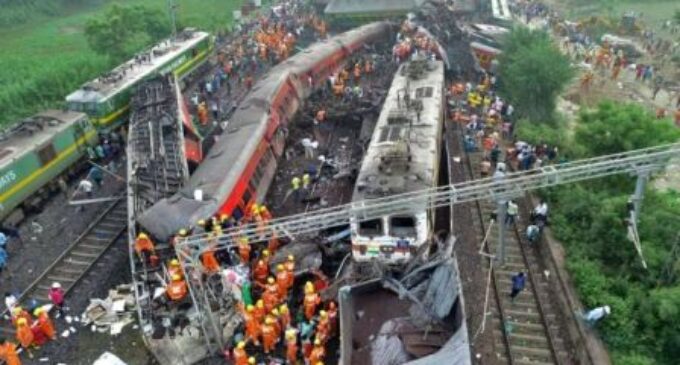Bahanaga train tragedy: 28 unidentified bodies to be disposed of in scientific manner

By Nalini Sahu
Bhubaneswar, Oct. 8: The 28 unidentified bodies of the devastating Bahanaga train tragedy that are at present lying in the mortuary of All India Institute of Medical Sciences (AIIMS), Bhubaneswar will be disposed of in a scientific manner.
Bhubaneswar Municipal Corporation (BMC) on Sunday issued a Standard Operating Procedure (SOP) with regard to the disposal of the corpses.
All 28 bodies have been preserved in special containers in the mortuary.
According to the AIIMS authorities, there were a total of 81 bodies and 110 claimants. 53 bodies were subsequently handed over after the necessary matching of the DNA samples. There were no claimants for the 28 bodies.
The catastrophic train accident took place on June 2 left 294 persons dead and nearly a thousand people injured. The mishap occurred when the Chennai-bound Coromandel Express rammed into a stationary goods train at Bahanaga Bazar station in Odisha’s Balasore district. Some of the derailed coaches subsequently collided with the Yeshvantpur Express returning to Howrah from the opposite direction.
The BMC has decided to provide two to three dead body carriers for the smooth transportation of bodies from AIIMS to the cremation ground. The Director AIIMS shall hand over the bodies to the BMC health officer following the existing rules and guidelines of the state, Centre, and NHRC for cremation of the bodies.
The entire process from receiving the bodies to cremation will be videographed, the BMC SOP, issued on Sunday, read.
The Central Bureau of Investigation (CBI) is currently probing into the train tragedy. The agency in July arrested three railway employees – signaling section engineers Arun Kumar Mahant, Mohammad Amir Khan and technician Pappu Kumar – in connection with the accident. They were arrested on charges of negligence in their duties that led to the tragic accident. The trio was booked under sections 304 (culpable homicide not amounting to murder) and 201 (destruction of evidence) of the Indian Penal Code (IPC) and section 153 of the Railways Act, 1989 (wilful neglect endangering safety of railway travellers).






